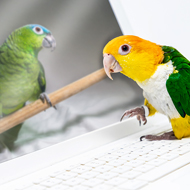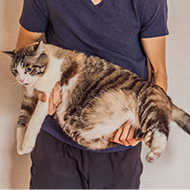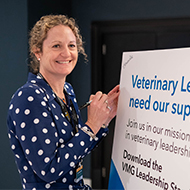Handwashing biggest contributor to pesticide pollution, study finds
The VMD has announced it will review guidelines.
The Veterinary Medicines Directorate (VMD) has announced it will review companion animal medicine guidelines, after a study revealed the impact of flea treatments on environmental pollution.
The study has shown that pet owners washing their hands in the weeks after administering flea treatments were the biggest contributors to the toxic pesticides fipronil and imidacloprid polluting rivers.
The research, conducted by scientists from the University of Sussex and Imperial College London, examined samples from 98 dogs that had been treated with spot-on fipronil or imidacloprid. They then used these to evaluate the owner’s contribution to water pollution through handwashing, bathing pets or cleaning pet bedding.
The results highlighted owner handwashing as the largest contributor to pesticide pollution, with fipronil or imidacloprid detected on pet owners for at least 28 days after spot-on application to their pet. Although current guidance advises owners to avoid touching their pets for 24 hours after administration, the study reveals that pollution continues for the entire duration of the product.
Campaigners are now calling for a review of the regulatory and prescribing practices surrounding flea and tick treatments.
Josie Cohen, head of policy and campaigns at Pesticides Action Network (PAN) UK, said: “The UK is one of the most nature depleted countries in the world and our rivers are terribly polluted.
“Given that there are plenty of alternative pet medicines available, we should be taking a precautionary approach and removing these chemicals from the market before they can do any more damage.”
The study was commissioned by the VMD, in a move to fill evidence gaps in anti-parasitic research. The agency has now revealed that this has raised sufficient data for them to review the VICH guidelines.
The current guidelines deem the environmental risks of companion animal medicine as ‘negligible’, and so these medicines do not see further risk assessment for environmental exposure.
A spokesperson from the VMD said: “The VMD welcome the findings from this paper and will take them forward internally and within the cross-government Pharmaceuticals in the Environment Group.
“At the same time, it is important to highlight that there are several evidence gaps remaining, including the need to understand the impacts that flea and tick treatments have on aquatic ecosystems and the need to understand the negative impacts on animal health and human health in changing possible usage patterns.
“Nevertheless, the VMD now consider there to be sufficient data to support a review of the internationally agreed Environmental Risk Assessment guidelines.”
The full study can be found in the journal Science of The Total Environment.
Image © Shutterstock






 The veterinary mental health charity Vetlife is inviting the veterinary community to join it for a sponsored cold-water dip.
The veterinary mental health charity Vetlife is inviting the veterinary community to join it for a sponsored cold-water dip.
